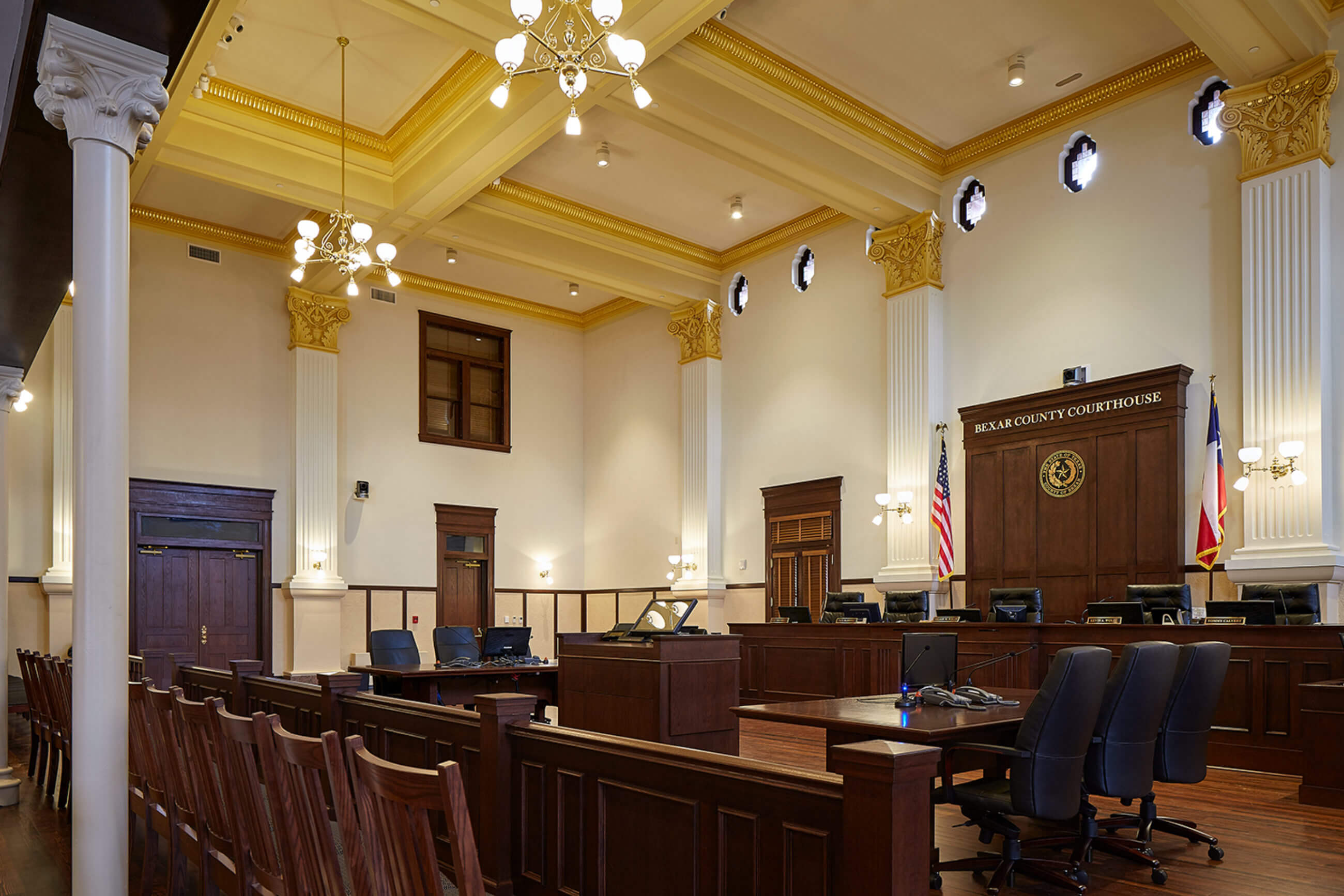Bexar County Magistrate Court: Your Go-To Guide For Legal Matters
When it comes to navigating the legal system in Bexar County, understanding the role of the magistrate court is crucial. Whether you're dealing with traffic violations, misdemeanors, or other legal matters, the Bexar County Magistrate Court plays a vital part in the process. In this guide, we'll break down everything you need to know about this essential legal institution, making sure you're well-prepared for whatever comes your way.
Let's be real, legal stuff can get super overwhelming, especially if you're not familiar with how the system works. But don't worry—we're here to break it down for you. The Bexar County Magistrate Court isn't just another court; it's a key player in ensuring justice and fairness for everyone involved. Whether you're facing minor offenses or need clarification on legal procedures, this guide will help you navigate the system like a pro.
Before we dive deep into the nitty-gritty details, let's set the stage. This article is designed to be your ultimate resource for understanding the Bexar County Magistrate Court. We'll cover everything from its role and responsibilities to practical tips for handling your case. So, buckle up and let's get started!
Read also:Unveiling The Legacy Of Don Hinds A Journey Through Music And Influence
Understanding the Role of Bexar County Magistrate Court
First things first, what exactly is the Bexar County Magistrate Court? Think of it as the gatekeeper of the legal system. Magistrate courts are responsible for handling preliminary matters, including setting bail, issuing warrants, and conducting initial hearings. These courts play a crucial role in ensuring that the justice process runs smoothly and efficiently.
In Bexar County, the magistrate court handles a wide range of cases, from traffic tickets to more serious criminal charges. It's important to note that magistrates are not judges in the traditional sense. Instead, they focus on administrative tasks and initial legal procedures. This makes them a vital link in the chain of justice, ensuring that cases are processed fairly and promptly.
Key Responsibilities of Magistrate Courts
- Setting bail amounts for defendants
- Issuing arrest warrants and search warrants
- Conducting initial hearings to determine probable cause
- Handling traffic violations and minor offenses
- Reviewing and approving legal documents
These responsibilities might sound technical, but they're essential for maintaining the integrity of the legal system. Magistrate courts ensure that every case gets the attention it deserves, setting the stage for more in-depth proceedings if necessary.
Bexar County Magistrate Court: A Closer Look
Now that we've covered the basics, let's zoom in on the Bexar County Magistrate Court specifically. Located in San Antonio, Texas, this court serves a population of over 2 million people. With such a large and diverse community, the court handles thousands of cases each year, making it one of the busiest magistrate courts in the state.
One of the standout features of the Bexar County Magistrate Court is its commitment to accessibility and transparency. The court provides resources for both attorneys and the general public, ensuring that everyone has access to the information they need. From online case lookup systems to in-person assistance, the court goes above and beyond to serve its community.
How Does the Bexar County Magistrate Court Operate?
Here's a quick breakdown of how things work:
Read also:Exploring The Legacy And Impact Of Mathew Knight Arena
- Case Filing: Cases are filed either by law enforcement or private individuals, depending on the nature of the offense.
- Initial Hearings: Once a case is filed, the defendant is brought before a magistrate for an initial hearing. This is where bail is set, and probable cause is determined.
- Warrant Issuance: If there's sufficient evidence, magistrates can issue arrest warrants, ensuring that defendants appear in court.
- Case Resolution: Many cases are resolved at the magistrate level, while others are referred to higher courts for further proceedings.
This streamlined process helps ensure that cases are handled efficiently, reducing delays and backlogs in the system.
Common Cases Handled by Bexar County Magistrate Court
Now, let's talk about the types of cases you're most likely to encounter in the Bexar County Magistrate Court. While the court handles a wide variety of legal matters, some cases are more common than others. Here's a look at what you might expect:
- Traffic Violations: From speeding tickets to DUIs, traffic offenses make up a significant portion of the court's caseload.
- Misdemeanors: Petty theft, public intoxication, and other minor offenses are frequently heard in magistrate court.
- Domestic Disputes: While more serious domestic cases may be referred to higher courts, initial hearings often take place in magistrate court.
- Probation Violations: If someone violates the terms of their probation, they may be brought before a magistrate for a hearing.
These cases might seem minor, but they can have a significant impact on your life if not handled properly. That's why it's important to understand the role of the magistrate court and how it operates.
Why the Bexar County Magistrate Court Matters
So, why should you care about the Bexar County Magistrate Court? For starters, it's your first line of defense in the legal system. Whether you're facing a minor traffic violation or a more serious charge, the decisions made in magistrate court can have lasting consequences. Understanding how the court works and what to expect can help you navigate the process with confidence.
Additionally, the Bexar County Magistrate Court plays a critical role in ensuring public safety. By issuing warrants and setting bail, magistrates help ensure that dangerous individuals are held accountable while protecting the rights of defendants. It's a delicate balance, but one that's essential for maintaining a fair and just society.
The Importance of Legal Representation
If you find yourself in front of a magistrate, having legal representation can make a huge difference. While it's not always required for minor offenses, having an attorney can help ensure that your rights are protected and that you receive a fair hearing. Many people make the mistake of going it alone, only to regret it later when things don't go their way.
That's why it's important to consult with an experienced attorney before appearing in court. They can help you understand your options, negotiate plea deals, and ensure that your case is presented in the best possible light. Trust us—it's worth the investment!
How to Prepare for Your Day in Court
Heading to court can be nerve-wracking, but with the right preparation, you can feel confident and ready to face whatever comes your way. Here are some tips to help you get ready:
- Know Your Case: Make sure you understand the charges against you and any relevant laws or regulations.
- Gather Evidence: Collect any documents, photos, or other evidence that might support your case.
- Consult an Attorney: As we mentioned earlier, having legal representation can make a big difference. Even if you can't afford an attorney, many courts offer free or low-cost legal assistance.
- Dress Appropriately: First impressions matter, so make sure you're dressed professionally and respectfully.
- Be Punctual: Showing up late can reflect poorly on you, so make sure you arrive with plenty of time to spare.
By following these tips, you'll be well-prepared for your day in court and ready to present your case with confidence.
Understanding Your Rights in Magistrate Court
One of the most important things to remember when dealing with the Bexar County Magistrate Court is that you have rights. Whether you're facing a minor traffic violation or a more serious charge, it's crucial to understand what those rights are and how to exercise them. Here's a quick rundown:
- Right to Remain Silent: You're not required to say anything that could incriminate you. Use this right wisely.
- Right to Legal Representation: You have the right to an attorney, even if you can't afford one. Many courts offer public defenders or legal aid services.
- Right to a Fair Hearing: Magistrates are required to follow strict procedures to ensure that your case is handled fairly and impartially.
Knowing your rights can help you avoid common pitfalls and ensure that your case is handled properly. Don't be afraid to speak up if you feel your rights are being violated!
Common Misconceptions About Magistrate Courts
There are a lot of myths and misconceptions floating around about magistrate courts, and it's important to separate fact from fiction. Here are a few common misconceptions:
- Magistrate Courts Are Just for Minor Offenses: While it's true that magistrate courts handle many minor cases, they also play a key role in more serious matters, such as setting bail and issuing warrants.
- You Don't Need an Attorney: While it's not always required, having legal representation can make a huge difference, especially in more complex cases.
- The Process Is Quick and Easy: While magistrate courts aim to be efficient, the legal process can still be time-consuming and complicated, especially if your case involves multiple charges or legal issues.
By understanding these misconceptions, you'll be better equipped to navigate the legal system and make informed decisions about your case.
Resources for Further Assistance
If you're dealing with a legal matter in Bexar County, there are plenty of resources available to help you. From online case lookup systems to free legal clinics, the court offers a variety of tools to ensure that everyone has access to justice. Here are a few resources to check out:
- Bexar County Courts Website: The official website provides a wealth of information, including case lookup tools, court calendars, and contact information for court staff.
- Legal Aid Services: Many organizations offer free or low-cost legal assistance for those who qualify. Check with local nonprofits or community organizations for more information.
- Court Clerks: Don't be afraid to reach out to court clerks for guidance or clarification on legal procedures. They're there to help!
These resources can make a big difference in helping you navigate the legal system and ensuring that your case is handled properly.
Conclusion: Navigating the Bexar County Magistrate Court
In conclusion, the Bexar County Magistrate Court plays a vital role in the legal system, ensuring that justice is served fairly and efficiently. Whether you're dealing with a minor traffic violation or a more serious charge, understanding how the court works and what to expect can help you navigate the process with confidence.
Remember to stay informed, know your rights, and seek legal assistance if needed. And most importantly, don't be afraid to ask questions or seek clarification if you're unsure about anything. The legal system can be complex, but with the right preparation and resources, you can handle whatever comes your way.
So, take a deep breath, gather your evidence, and head to court with confidence. You've got this! And if you have any questions or need further assistance, feel free to leave a comment or reach out to us. We're here to help!


